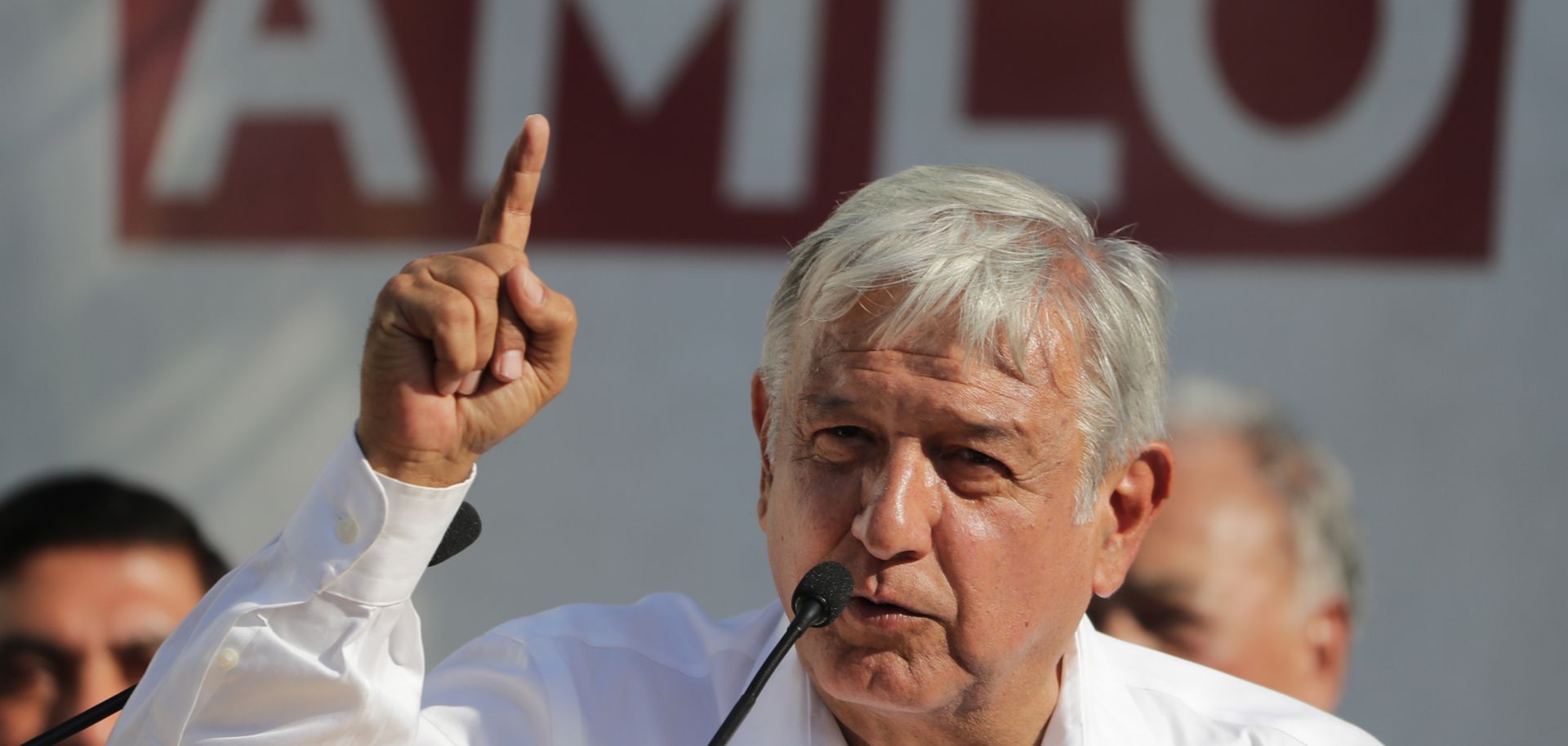ASSESSMENTS
What a Populist President Would Mean for Mexico
May 21, 2018 | 08:00 GMT

Andres Manuel Lopez Obrador, the National Regeneration Movement's candidate for Mexico's presidency, addresses the crowd at a campaign event on April 20, 2018. The populist leader's strong performance in the polls ahead of the July 1 vote is making investors in and outside Mexico nervous about what his administration would do.
(HECTOR VIVAS/Getty Images)
Highlights
- Polls suggest Mexico's populist coalition, led by the National Regeneration Movement, could win the presidency in the July 1 federal elections, along with a majority in the lower house and a near majority in the Senate.
- If the coalition gains only a lower house majority, it will face heavier pressure from established parties, including the Institutional Revolutionary Party (PRI) and the National Action Party (PAN), to moderate its populist stance.
- But the PRI and PAN will be weaker in the wake of the vote, assuming the polls bear out, and will have to rely on federal courts to halt potentially controversial legislative measures, such as energy or education reforms.
Subscribe Now
SubscribeAlready have an account?
